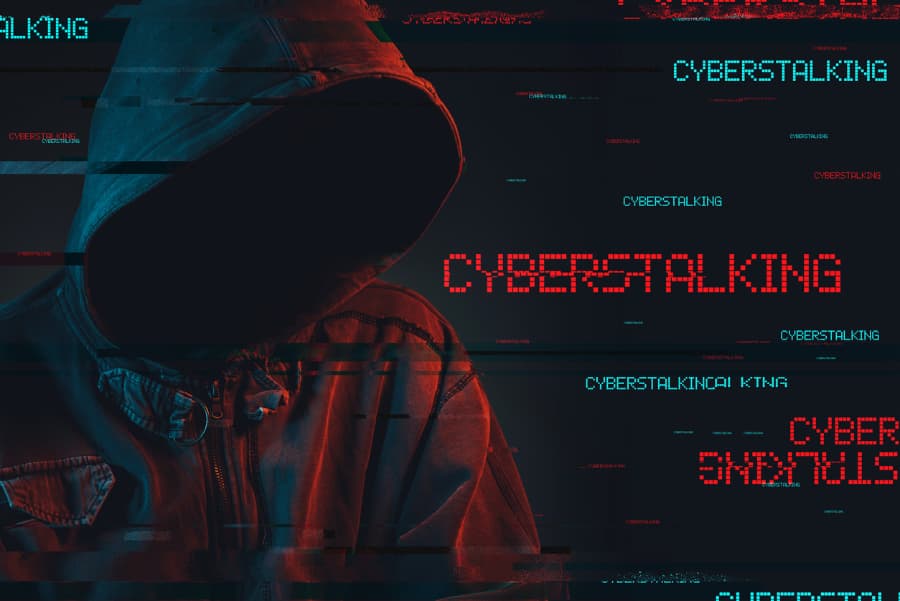
The use of social media, email, texting, and instant messaging has led to an increase in cyberstalking, which is a problem that can have a serious impact on your mental health and well-being. Cyberstalking can also be a big issue if you’re going through a divorce or child custody battle. Our divorce lawyers at Thomas, Conrad & Conrad share some helpful tips on what you should know about cyberstalking and how to deal with it.
What Is Cyberstalking?
Cyberstalking is when someone uses the internet or other digital media to intimidate, harass, embarrass, or threaten another person. It may take on the form of harassing or threatening texts, emails, instant messages, or comments on social media. Divorce is hard enough without adding cyberstalking into the mix, but it’s important to understand what cyberstalking is, whether you’re a victim, and how it can affect your divorce.
It’s also vital to know what actions or behaviors constitute cyberstalking or harassment — you may think that sneaking onto your spouse’s Facebook page is totally innocent, but you may be committing what’s considered cyberstalking and not even know it. If you’re going through a divorce, talking with your attorney about cyberstalking can help you stay safe and ensure your own actions don’t sabotage your divorce proceedings or break the law.
Protecting Yourself From Cyberstalking
During a separation or divorce, it’s important to make sure you safeguard your privacy. Change your passwords for email accounts, social media accounts, your smartphone, bank accounts, shopping sites, and any other apps or personal information your spouse may have access to.
You should always be careful about what you share online during a divorce. Disabling your social media accounts and not posting anything is your best bet, but if you do stay online, make sure all your settings are private. Consider any photos or posts that you make public. Don’t mention anything about your divorce, spouse, children, finances, or anyone you’re currently dating. Your spouse and their attorney may collect this information to use against you later, affecting issues surrounding property division, spousal support, and child custody.
Do Not Engage
Ignoring nasty messages can be challenging, but the best thing you can do if your spouse is cyberstalking you during a divorce is to ignore them. Don’t engage in arguments over email, text, or social media. When you’re attacked it’s only natural to want to defend yourself, but engaging with your spouse only adds fuel to the fire and gives them what they want — a response. If possible, block them on your phone, social media, email, and any other possible form of contact. Let your divorce attorney do all the talking for you instead.
It’s also critical to keep your own behavior in check. Blocking and ignoring your spouse can be an effective way to resist the temptation of responding in anger or lurking on their social media pages, which can come back to bite you in divorce proceedings.
Document Everything
If your spouse repeatedly contacts you, even when you’ve asked them not to, make sure you save everything they send to you. Don’t delete any messages or emails, and save all voice mails. Take screenshots of texts on your phone as a backup and save them in a safe place. Make sure to send or give all evidence to your divorce attorney.
When Cyberstalking Becomes Criminal
Cyberstalking and cyber harassment are crimes in Pennsylvania. In 2000, the United States Congress passed the Violence Against Women Act, which includes cyberstalking in the federal interstate stalking statute. If a spouse’s cyberstalking escalates and becomes threatening, talk with your divorce lawyer about legal action you can take to protect yourself and your children, if necessary.
Defamation, slander, dissemination of intimate photos, or threats that make you fear for your safety may be considered a form of domestic violence. Your attorney can help you understand your options and file a Protection from Abuse Order, which prohibits your spouse from coming near you or contacting you in any way. Violating a PFA can have serious consequences, such as fines and jail time. If your spouse has been cyberstalking or threatening you, a PFA will most likely deter them from continuing this behavior.
Contact A Divorce Attorney To Learn More About Cyberstalking
If you believe you’re a victim of cyberstalking during a divorce, don’t suffer in silence. Our compassionate family law team at Thomas, Conrad, & Conrad can act as your advocate throughout the divorce process and help you take steps to protect yourself. To schedule a consultation at one of our convenient locations in Bath, Allentown, or Topton, Pennsylvania, contact us online or call 610-867-2900.

